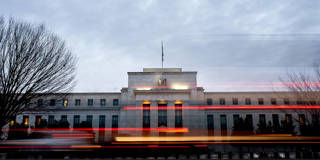Since the global financial crisis, and particularly during the COVID-19 pandemic, fiscal and monetary policymakers have operated as if there are no tradeoffs to their expansionary policy programs. Now that economic conditions have changed, they may soon have to relearn old lessons the hard way.
CHICAGO – Smart economic policymaking invariably requires trading off some pain today for greater future gains. But this is a difficult proposition politically, especially in democracies. It is always easier for elected leaders to indulge their constituents immediately, on the hope that the bill will not arrive while they are still in office. Moreover, those who bear the pain caused by a policy are not necessarily those who will gain from it.

CHICAGO – Smart economic policymaking invariably requires trading off some pain today for greater future gains. But this is a difficult proposition politically, especially in democracies. It is always easier for elected leaders to indulge their constituents immediately, on the hope that the bill will not arrive while they are still in office. Moreover, those who bear the pain caused by a policy are not necessarily those who will gain from it.